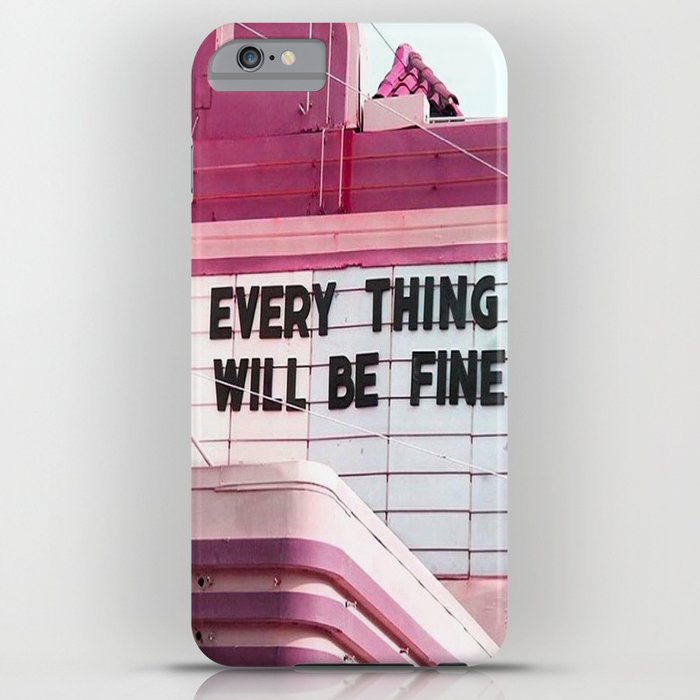Every Thing Will Be Fine Iphone Case
every thing will be fine iphone case
SKU: EN-R10424

every thing will be fine iphone case
That's a problem for Stratos, Coin and their rivals. "If you have a chip in your card, the POS system is going to prompt you to put your card in the [chip] slot," Mulpuru said. That becomes a problem with products like Stratos, which do not contain chips. That means you'll still need to carry around a backup card. EMV is also inherently more difficult to replicate than a magnetic stripe, and Stratos and its competitors have struggled to incorporate the technology into their first-generation products. Coin, which is the only other smart card shipping today, does not have EMV capabilities. Both companies plan to incorporate the technology into future products.
Plastc and Swyp, due out later this year, expect to be EMV-compliant, Plastc will include an EMV chip in its universal card while Swyp says it will provide an "over the air firmware upgrade."But EMV cards in the US will differ from those in Europe in one notable exception: Instead of the highly secure chip-and-pin cards used throughout Europe, US consumers will every thing will be fine iphone case use chip-and-signature cards, That distinction is why James Lynch preordered Stratos this month, An Ireland native, Lynch says he's used chip-and-pin cards for around a decade, and the US's relatively lax security measures made him uneasy when he moved to California last year..
"Purchasing Stratos mitigates some of this worry," he said. What's more, Stratos, Coin and their rivals don't directly store credit or debit card information unencrypted -- and only transmit sensitive data from your smartphone. That makes devices inherently more secure than the standard magnetic stripe credit card. There are also options to deactivate the card if it loses communication with your phone. Still, the arrival of EMV-ready terminals poses another hurdle for smart cards: those very same POS systems will likely be outfitted to handle Apple Pay, Samsung Pay, Google Wallet and other technologies that rely on so-called near-field communication, or NFC. As NFC terminals proliferate, Apple and its mobile payments rivals will become more popular.
"The media frenzy around mobile payments -- most recently Apple Pay -- has reached fever pitch and led some industry spectators to conclude that a payments revolution is at hand, Not so," Denée Carrington, a former senior analyst at the firm, wrote in November 2014, "The adoption of mobile payments is an evolution -- not every thing will be fine iphone case a revolution -- and the evolution is well underway."Perhaps the biggest threat to the smart card is simply the dizzying number of solutions trying to make physical credit cards obsolete altogether..
Samsung offers Samsung Pay for its Galaxy S6 phones. Samsung also owns the technology behind LoopPay, acquired in February, that lets you replicate a magnetic card swipe with either a phone case or a keychain fob. There's also Android Pay, a new Google-owned payments platform that will soon power its Google Wallet service. The credit card industry doesn't appear to care which wins out, however. That's because credit cards don't go away. They just end up in different devices, such as phones, dongles, watches or smart cards, said Sam Shrauger, Visa's senior vice president of digital solutions. Which form consumers pick doesn't matter to Visa, which processes transactions through its electronic network -- so long as it's not cash.
- new ballet shoes pointe on sale
- big w ballet shoes
- big w ballet flats
- ballet
- dance ballet reusable stencil | multiple sizes to choose from
- newborn/ baby girl/ new mom/ safety pin/ gift/ baptism/ baby shower/ ballet shoes/ evil eye/ charms/ heart/ candy bead/ footstep
- iphone 7 cases uk
- iphone screen protector free replacement
- classic c1 case for apple iphone 7 and 8 - snow
- iphone 6s / 6 olixar sentinel case and glass screen protector
- princess leia rebel iphone case
- More...
